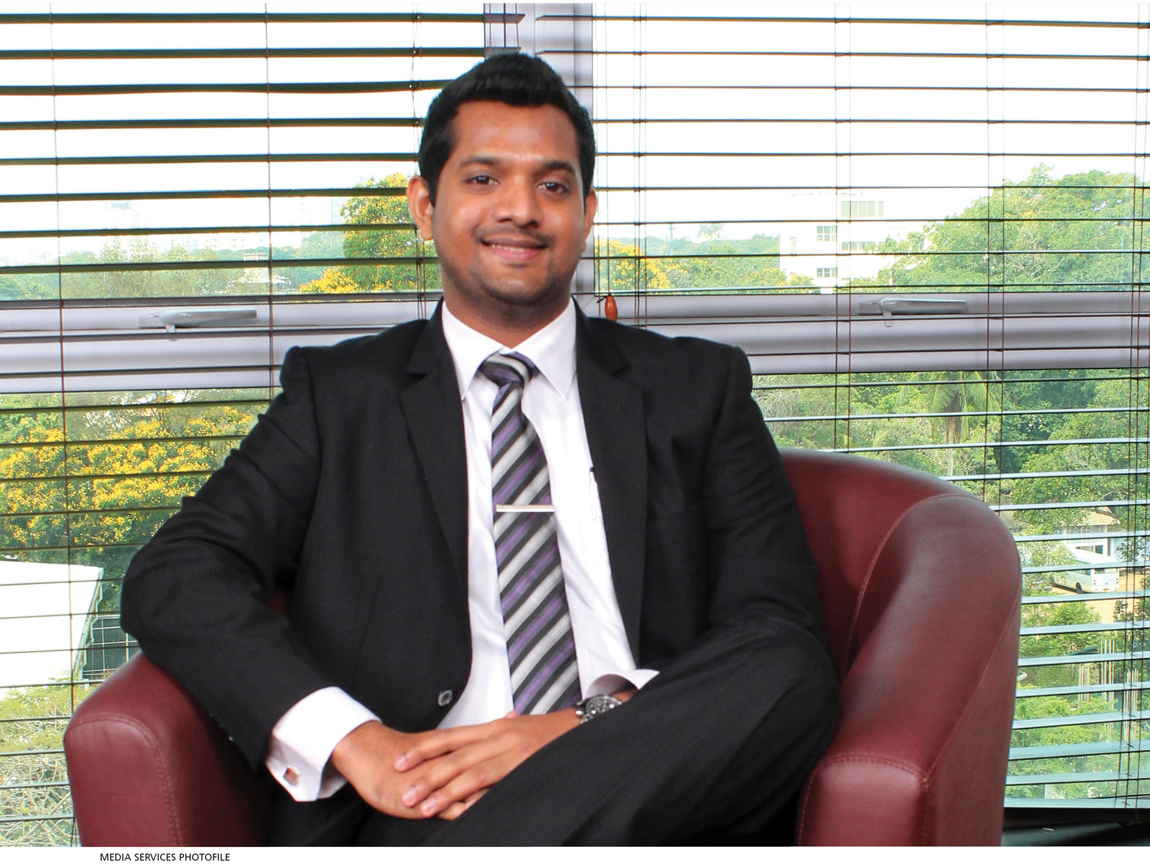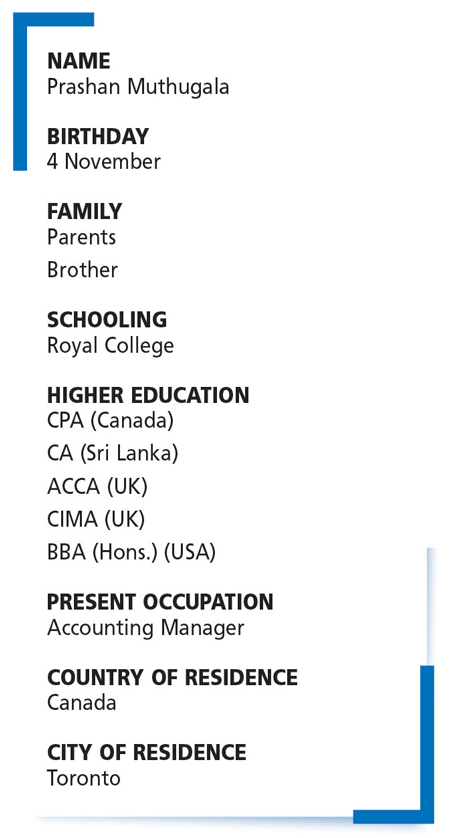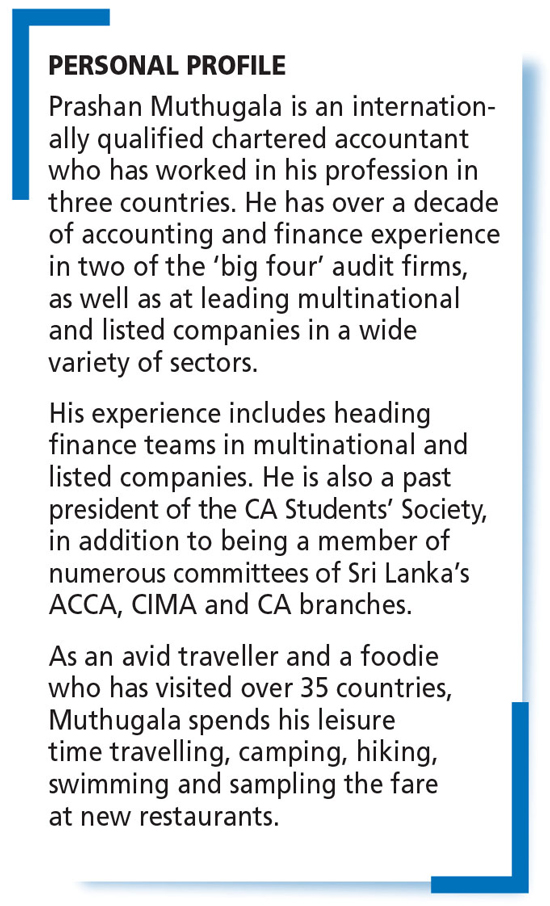RETURN OF THE NATIVE
Prashan Muthugala
Many Sri Lankans may be willing to come back if all is well
A: Sri Lanka is a beautiful country with plenty of potential but it suffers from a lack of political leadership, long-term vision and good governance.
Q: Do you think Sri Lanka is capable of regaining its composure in the aftermath of multiple crises – including the most recent economic crisis?
A: I believe that in spite of its potential, it will take a couple of years or more for the country to recover to pre-pandemic levels.
Since Sri Lanka is heavily dependent on imports, the lack of foreign exchange reserves causes a critical issue.
Because the majority of our export industries are also reliant on imports, the current issues faced by the country make for a cycle that will take some time to resolve – unless international donor agencies provide assistance.
Q: From afar, what advice would you offer Sri Lankans in the context of crisis management and finding solutions to the multiple issues they face?
A: Sri Lankans are extremely resilient – possibly due to the hardships they go through on a regular basis – and mentally strong compared to people in some developed nations.
My advice to all Sri Lankans is to stay united and face the current crisis together. This will enable the country to regain its momentum; and hopefully, lead to the appointment of more competent politicians to lead the country.
Q: How do compatriots in your country of domicile view Sri Lanka?
A: Canadians in general see Sri Lankans as friendly, hardworking and innocent people who don’t intend to do them any harm.
Those who have visited Sri Lanka are in love with its natural beauty, cultural diversity and the hospitality of people. Another group thinks that Sri Lanka is a part of India, which is a misconception that I always correct!
Q: Likewise, how do other Sri Lankans living in Canada view their motherland?
A: The majority are still in love with Sri Lanka although they’re sad and disgusted by the actions taken by politicians and governments over the last few decades. Some of them would love to move back to Sri Lanka if they’re given a chance and the situation improves.
Q: What were your impressions of Sri Lanka on your last visit – and how much has it changed from the past?
A: My last visit to Sri Lanka was in September 2021 and there was an import restriction in place at the time. I noticed immediately how much it has affected the day-to-day lives of people and businesses that are heavily dependent on imports.
I can imagine how hard it must be with the current economic crisis, which is much worse now than it was when I visited the country last year.
Q: How do you view the brain drain – and why is there still no reversal of it, in your opinion?
A: As I’m also a part of the brain drain, I can’t blame anyone who left Sri Lanka for greener pastures. With globalisation, you are not restricted to work or live in a particular country. If you have the capability and willingness to try new options, opportunities will always come your way.
People left Sri Lanka mainly because they didn’t see a future or room for growth. If the leadership and political system change, and the economy improves, I’m positive that many Sri Lankans living abroad will move back.
Q: What should Sri Lanka focus on most in the coming decade?
A: Sri Lanka should focus on building a solid political system that’s protected by checks and balances so that no one can take hasty executive decisions.
Further, the economic crisis has shown us how fragile the country is. As such, there is a need for a stronger, self-reliant economy that focusses on exports, and perhaps more investments in tourism and services such as business process outsourcing (BPO).
Q: And what are your hopes for the country in the next decade or so?
A: I hope Sri Lanka recovers from the prevailing crisis very soon, and people learn from this situation and develop mechanisms to prevent similar issues from occurring in the future – by working to establish economic stability as well as refraining from playing short-term games for personal or political gain.
– LMD
This content is available for subscribers only.











